In this Working Paper, Kathy Win discuses the role of CSOs, faith-based groups and ethnic armed organisations in harm reduction programmes in Northern Shan State.
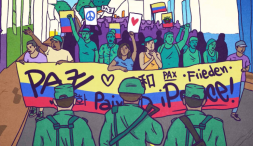
Reflecting on ‘impact’ in artist-academic collaborations in times of conflict
This article in the Journal of Humanitarian Affairs reflects on the challenges and opportunities of collaboration between artists and academics in making the animation ‘Colombia’s Broken Peace’.

Precarious lives, precarious treatments: Making drug treatment work in Northern Myanmar
This article explores how drug dependency treatment is made to work in efforts to sustain everyday livelihoods.
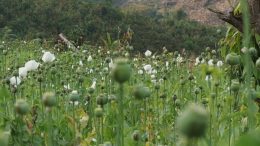
Non-medical pathways away from harmful drug use in Kachin state, Myanmar
This paper discusses intersectional approaches to understanding pathways out of harmful drug use in Kachin state, Myanmar, through telling the life story of a well-known advocate for better treatment of drug users.

We eradicated coca: now what?
This digital report highlights the personal experiences of some of Colombia’s “substitution farmers” who eradicated their illicit coca crops as part of the Peace Agreement’s substitution programme, but are still waiting for the state to deliver what was promised to them.

Voices from the borderlands 2022
Our flagship report, based on a collection of life stories that offer insights into how illicit drugs, violence and conflict, poverty and development, and insecurity and resilience are entangled in the everyday lives of people in the borderlands.
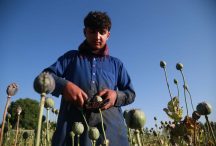
Agribusiness meets alternative development: Lessons for Afghanistan’s licit and illicit commodity markets
This AREU research paper is a case study of CARD-F, a nine-year aid-funded rural development programme which began with counternarcotic goals.
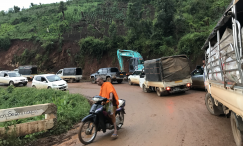
Spatial borderland biography: Myanmar
Spatial data on Myanmar borderlands, including administrative boundaries, transport and road networks, agriculture and hydrology, available via UK Data Service.
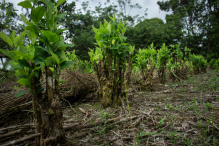
Spatial borderland biography: Colombia
Spatial data on Colombian borderlands, including borders, narcotics, infrastructure and agriculture, available via UK Data Service.
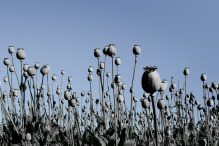
Spatial borderland biography: Afghanistan
Spatial data on four Afghan borderlands, including borders, opium production, drug routes, infrastructure and agriculture, available via UK Data Service.

“Everyone here feels that they have been let down by the government.”
Audio Audio translationQuestion: When you decided to take out the coca as part of this programme, what was your motivation to do so, why did you make the decision?Answer: On …
Continue reading ““Everyone here feels that they have been let down by the government.””

“If the PNIS had been a reliable programme, there wouldn’t be any more coca.”
In this area of Tumaco, characterised by its coconut production, the programme has seen serious delays. As well as the common problems (delayed payments, suspensions, etc), these beneficiaries never received …
Continue reading ““If the PNIS had been a reliable programme, there wouldn’t be any more coca.””

“We managed to grow this cacao ourselves, all thanks to our hard work and not the government.”
“We went into the substitution programme to eradicate coca, and because you need money to invest in a project here. We needed help, my kids are in secondary school and …

Fish farming project led by women – Guayacana
“Tilapia could be an option, if the government invests money into it.” We went to Lorenzo’s* farm, situated in one of the rural divisions along the Tumaco-Pasto highway. Lorenzo came …
Continue reading “Fish farming project led by women – Guayacana”

Myanmar datasets
Four datasets of interviews, media resources and life histories illicit drugs and youth in Myanmar, available via the UK Data Service.
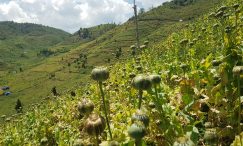
Brokered rule: Militias, drugs and borderland governance in the Myanmar-China borderlands
This Journal of Contemporary Asia article discusses how the illegal drug trade has become integral to systems of brokered rule in northern Shan State, Myanmar.
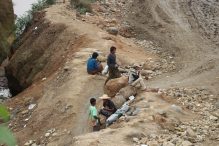
Critique of everyday narco-capitalism
This Third World Quarterly article discusses how capitalism alters life at the nexus of drug production, trade and consumption in the borderlands of Afghanistan, Colombia and Myanmar.
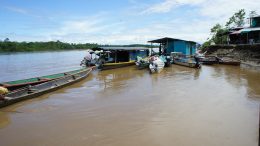
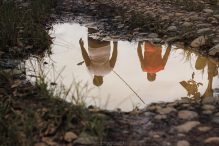
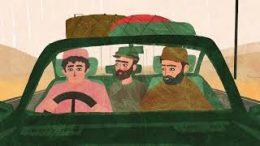
Entangled lives: conflict and illicit economies in Afghanistan
This animation tells the story of a smuggler on the border between Afghanistan and Iran.

